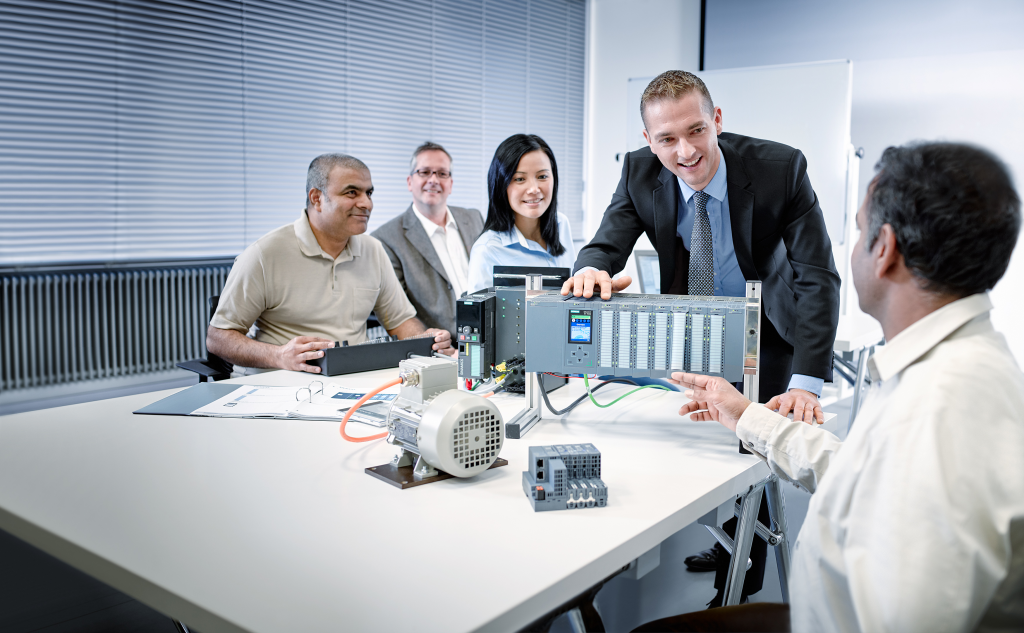A strong partnership
4th September 2017 - For the past 15 years, the Swiss Federal Institute for Vocational Education and Training (SFIVET) has worked with Siemens Switzerland to offer continuing training courses for workplace trainers in the field of industrial automation technology. This cooperation has been a true success story.
In 2001, Siemens Switzerland was looking for a partner for its Siemens Automation Cooperates with Education (SCE) programme and chose SFIVET. Fifteen years later, both partners can proudly look back at what they have achieved: since 2002, SFIVET has created 130 courses for workplace trainers in the field of industrial automation technology. More than 70% of these courses were taught, which is a very high rate. In this period, over 800 individuals have attended these courses and many have returned for additional training. ‘We have built a true community, comprised of around 200 people,’ reports Rainer Hofer, project manager at SFIVET.
Very modern remote workplaces
Course content includes real automation tasks encountered on a daily basis. Since 2012, these tasks have been performed using remote-control technology: course participants remotely control equipment donated for this purpose by an association. A camera allows them to monitor the remotely controlled conveyor belt. This approach offers numerous benefits: after the course, participants retain access to the equipment, which allows them to practice what they have learnt and later demonstrate tasks to learners. For SFIVET, this form of learning is an ideal means of preserving the jobs of laboratory workers, who need to be up to speed with the latest technological developments.
Participants attend courses for free
From the very beginning, participants have not had to pay for these courses – Siemens covers their course fees. Hofer is pleased that courses can still be offered in this manner despite considerable pressures to cut costs. For Andreas Rohrbach, course manager for the Siemens Automation Cooperates with Education programme, the situation is clear: ‘the minute participants are asked to pay for the course, demand will fall. If Switzerland is to hold on to its position as a top-notch location for industrial activities, we can’t cut corners on vocational education and training. Our products set standards in this branch. This comes with responsibilities that we, of course, assume.’
Practical focus and steady improvements
Rainer Hofer feels that direct applicability of course content to real working activities is one of the main success factors of these courses: ‘Courses are both practical and reflect the latest trends.’ All learning materials are free from copyright and participants can reuse the exact same documents with their learners. Another success factor is the close evaluation of feedback after each course. Moreover, Siemens is a strong industrial partner aware of the latest trends in the branch. This enables learning content to be readily implemented. The range of courses is also updated on a regular basis and existing courses are optimised. Andreas Rohrbach is also satisfied with the level of cooperation: ‘SFIVET is just the right partner we needed to handle the methodological and didactic aspects of these courses. I am always impressed by the constructive atmosphere of comradery found in the courses. We also receive very positive feedback from participants.'
